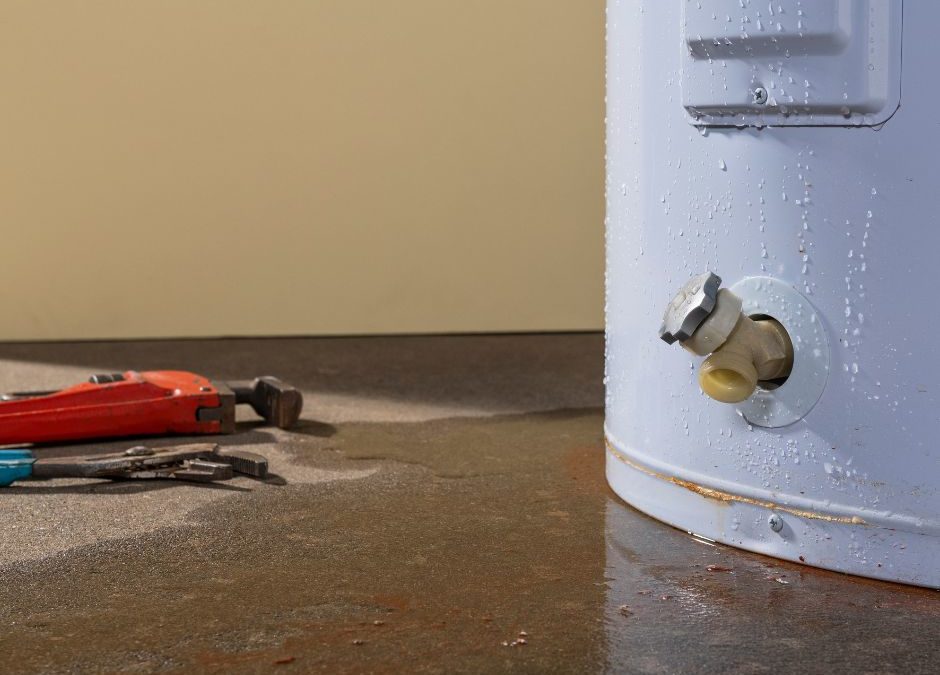There are few things worse than stepping into an ice-cold shower when you least expect it. Or finding your laundry is less than clean because the water never heated up? It might be time to consider North Charleston water heater repair.
We’ll discuss how to tell if your water heater is malfunctioning, or if it just needs a bit of fine-tuning. Here’s the lowdown on some signs it’s a good time for water heater repair.
Signs Your Water Heater May Need Repair
Repairing a water heater can be pain, but it causes a lot of problems the longer you wait. If you notice any of these warning signs that something is going wrong, getting a professional opinion on the situation can help.
1. No Hot Water
If you turn on your hot water tap and no running water comes out, it is an obvious sign that there’s an issue. Several factors can contribute to this problem, including a malfunctioning heating element, a broken thermostat, or a problem with the water pipes connected to water heater.
2. Insufficient Hot Water Supply
One of the most commons signs that your water heater needs repair is a lack of hot water or a reduced water temperature. If you notice that your showers are turning lukewarm or your taps are producing warm water instead of hot water, it could indicate problems with the electrical thermostat in your water heater.
Or, for gas water heaters, it could mean the burner assembly is not functioning properly. You should call a professional plumber to see if you need a water heater repair or to replace your water heater altogether.
3. Rusty or Discolored Water
When you turn on your hot tap water supply and notice rusty or discolored water coming out, it is a clear indication of a potential problem with your water heater. A rusty water heater could be caused by corrosion within the tank, which can occur as the unit ages.
Sediment buildup at the bottom of the tank can also contribute to the discoloration. If you consistently experience rusty water, it’s essential to have a plumber inspect your water heater and determine whether it’s time to replace the unit.
4. Leaking Water
Water pooling around your water heater tank or dripping from the unit is a definite cause for concern. Water leaks can occur due to cracks or fractures in the tank, faulty valves, or connections that have become loose over time.
Ignoring hot water heaters that leak can lead to significant property damage, so it’s crucial to address these issues promptly. A professional plumber will be to assess the extent of the leak and recommend the appropriate repair or a new water heater if needed.
5. Strange Noises
Water heaters start to make rumbling noises or banging sounds when they’re malfunctioning. If you hear these sounds, it may indicate sediment buildup within the tank. As water is heated, minerals in the water can settle at the bottom of the tank, creating a layer of sediment.
When the heating element interacts with this sediment during the heating cycle, it can start making strange noises. Having your water heater regularly maintained, including flushing the tank to remove sediment, can help prevent these issues.
6. Older Water Heater
The age of your water heater is a significant factor in determining whether it needs repairs or a replacement. Most home and business owners can expect a water heater to last anywhere between 8-12 years.
The efficiency declines with an aging water heater, and the likelihood of experiencing issues increases. If your water heater is nearing or exceeding its expected lifespan, it may be time to start looking at replacing your outdated water heater to avoid unexpected breakdowns.
7. Fluctuating Water Temperature and Pressure
If you frequently experience inconsistent water temperature or low water pressure this could be an indication of a faulty water heater. Fluctuations in water temperature may occur due to a faulty thermostat or a malfunctioning heating element.
Similarly, reduced water pressure can be a result of sediment building up or clogged pipes. A plumbing professional can diagnose the underlying cause and perform the necessary repairs to restore optimal water temperature and pressure.
8. Elevated Energy Bills
A sudden increase in your energy bills without any notable changes in your water usage patterns could be linked to a malfunctioning water heater.
Insufficient heating functions, such as a failing element or damaged insulation, can cause your water heater to consume more energy than necessary. Monitoring your energy bills and identifying unexplained spikes can help you determine if your water heater requires professional attention.
9. Foul Odors
If your hot water develops a strong, unpleasant smell, it could indicate a problem with your water heater. Bacterial growth within the tank, often caused by sediment buildup or a lack of routine maintenance, can lead to foul odors.
The presence of sulfur-like or rotten egg smells is commonly associated with bacterial contamination. A qualified plumber can flush the tank, clean it thoroughly, and address any underlying issues to eliminate the unpleasant odor and ensure the water heater functions properly.
10. Visible Signs of Damage
Inspecting your water heater for visible signs of damage can give you valuable insights into its condition. Look for any signs of corrosion or rust on the tank, connections, or pipes. Corrosion weakens the structural integrity of the unit and increases the risk of leaks.
Additionally, check for water stains or moisture on the floor surrounding the water heater, as this could indicate an ongoing or previous leak. Promptly addressing visible signs of damage can help prevent further deterioration and potential water damage.
11. Your Plumber’s Number is On Speed Dial
If your speed dial is starting to fill up with a plumber’s number due to frequent water heater issues, it’s a sign that your water heater might be hanging by a thread. It’s true, a proficient plumber can prolong your water heater’s life, but there are times when the most budget-friendly choice is a full replacement.
Final Thoughts
In closing, knowing how to tell if your hot water heater needs replacing or repairing can save you from cold showers, unwashed dishes and clothes, and extra expenses down the road. So, don’t ignore these signs and if any of them sound familiar, it’s a good time to have your water heater inspected and repaired if necessary.
Remember, it’s always a good idea to tackle a small issue today than to let it become a bigger, more expensive issue tomorrow. Repairing water heater issues sooner rather than later is the more cost-effective option.
Contact us today to learn more and schedule an appointment!

